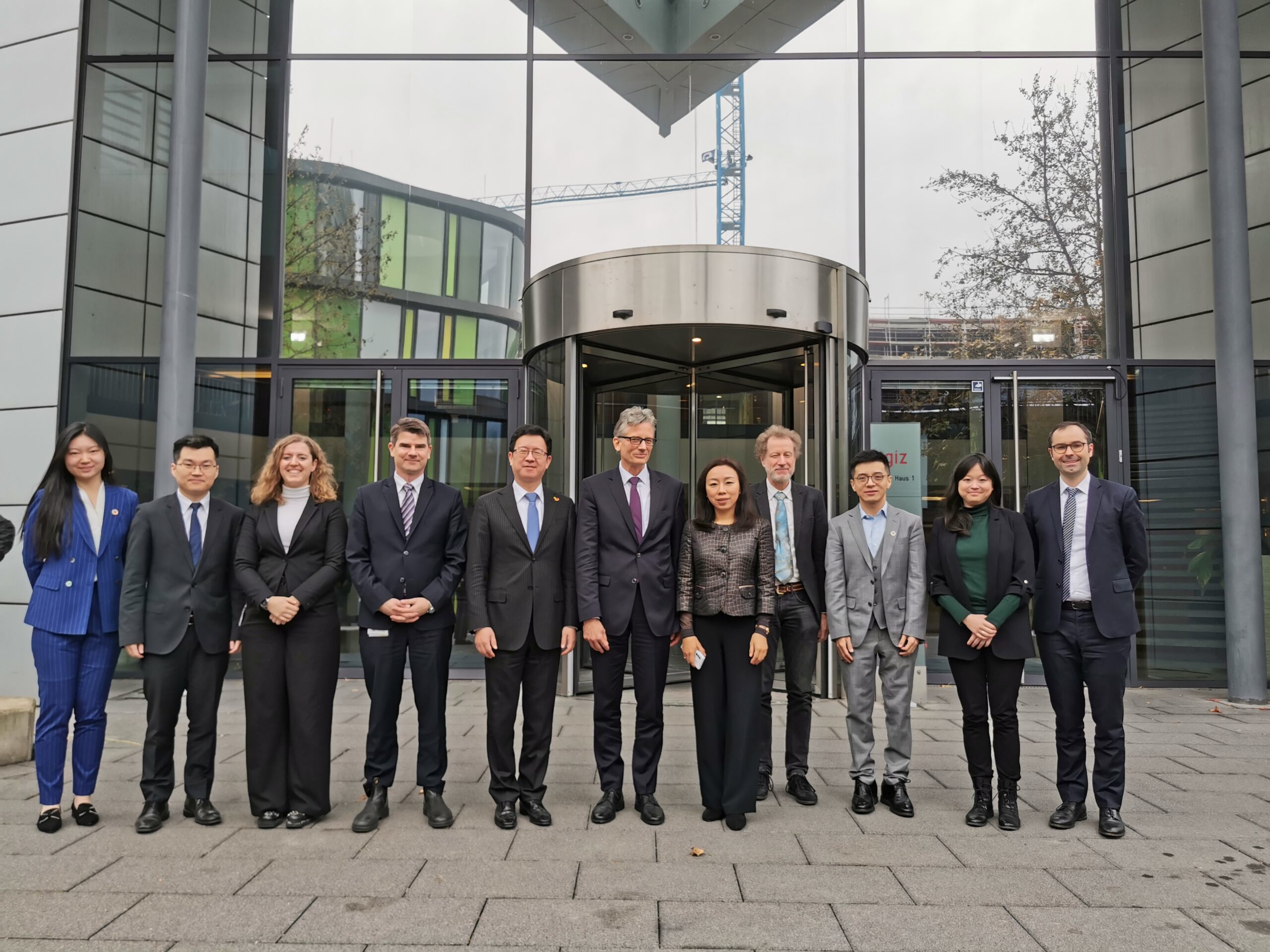In July 2020, the Ethiopian Ministry of Trade and Industry (MoTI), the Chinese Ministry of Commerce (MofCom), and the German Federal Ministry for Economic Cooperation and Development (BMZ) jointly endorsed the triangular cooperation project: Sustainable Textile Investment and Operation in Ethiopia through a Memorandum of Understanding. This marked the official launch of the second triangular cooperation project initiated and developed under the framework of the Sino-German Center for Sustainable Development (CSD), the first one with an African country. Established by the Chinese and German government as a concrete effort to tackle global challenges and promote the implementation of the 2030 Agenda, one of the CSD’s key tasks is to identify and prepare triangular cooperation projects between Germany, China, and third countries, especially in Africa and Asia.
Collectively implemented by the Ethiopian Textile Industry Development Institute (ETIDI), the China National Textile and Apparel Council (CNTAC), GIZ, and the United Nations Industrial Development Organization (UNIDO), the project aims at improving the environmental, social and labour standard of Ethiopia’s textile sector. This will be done through capacity development and awareness raising in the Ethiopian textile and garment industry, focusing on Chinese investors and their Ethiopian business partners. The project is seen as a first step, with a potential for scaling-up and replication elsewhere in Africa and Asia.
In the path to industrialize Ethiopia, the textile industry is given a prominent position by the Ethiopian government in boosting export and creating job opportunities. The industry serves as a model to other sectors and has become a top priority in Ethiopia’s goal to become a middle-income country by 2025.
Over the last years, Chinese enterprises have started moving manufacturing operations to other countries, supported by national policy encouraging overseas investment and the upgrading of the textile sector. Ethiopia, among other, is becoming an attractive destination in this regard and has seen investment rising. According to United Nations Conference on Trade and Development (UNCTAD), China was the largest investor in Ethiopia in 2019, accounting for 60% of newly approved FDI projects. While investment rises, Chinese textile and garment investors in Ethiopia need to raise awareness and improve their capacity to address the social and environmental impacts of their operations. Specifically, with regard to business relations with Ethiopian customers and clients, increased awareness of sustainability, related risks and potentials is crucial to sustaining and boosting business ties, furthermore, ensuring positive impact on economic development in the country.
Shortly after the establishment of the CSD, initial discussions by the Federal Ministry of Economic Cooperation and Development (BMZ) and the Ministry of Commerce of the People’s Republic of China (MofCom) about a triangular cooperation project in the textile sector began. The idea was built on the established partnership between GIZ and CNTAC in Asia through the project Promoting Sustainability in the Textile and Garment Industry in Asia (FABRIC) with the aim of expanding the existing cooperation to a multi-partner setting and broadening its regional scope. In 2019, the concreate idea for a Sino-German-Ethiopian project came into preparation. The project will be funded comparably by the BMZ and the MofCom, with MofCom channeling its contribution through the UNIDO within the framework of South-South Cooperation.
The triangular project will kick off with an inception phase, followed by a baseline survey which will be implemented to provide an overview on how Chinese invested textile businesses in Ethiopia and local Ethiopian suppliers working with Chinese investors are performing against Environmental, Social, and Governance (ESG) criteria. Based on results of the baseline survey, appropriate capacity development activities, knowledge sharing and know-how transfer will be conducted for Chinese invested textile businesses and local Ethiopian suppliers.
For more information, please visit the project database here.




